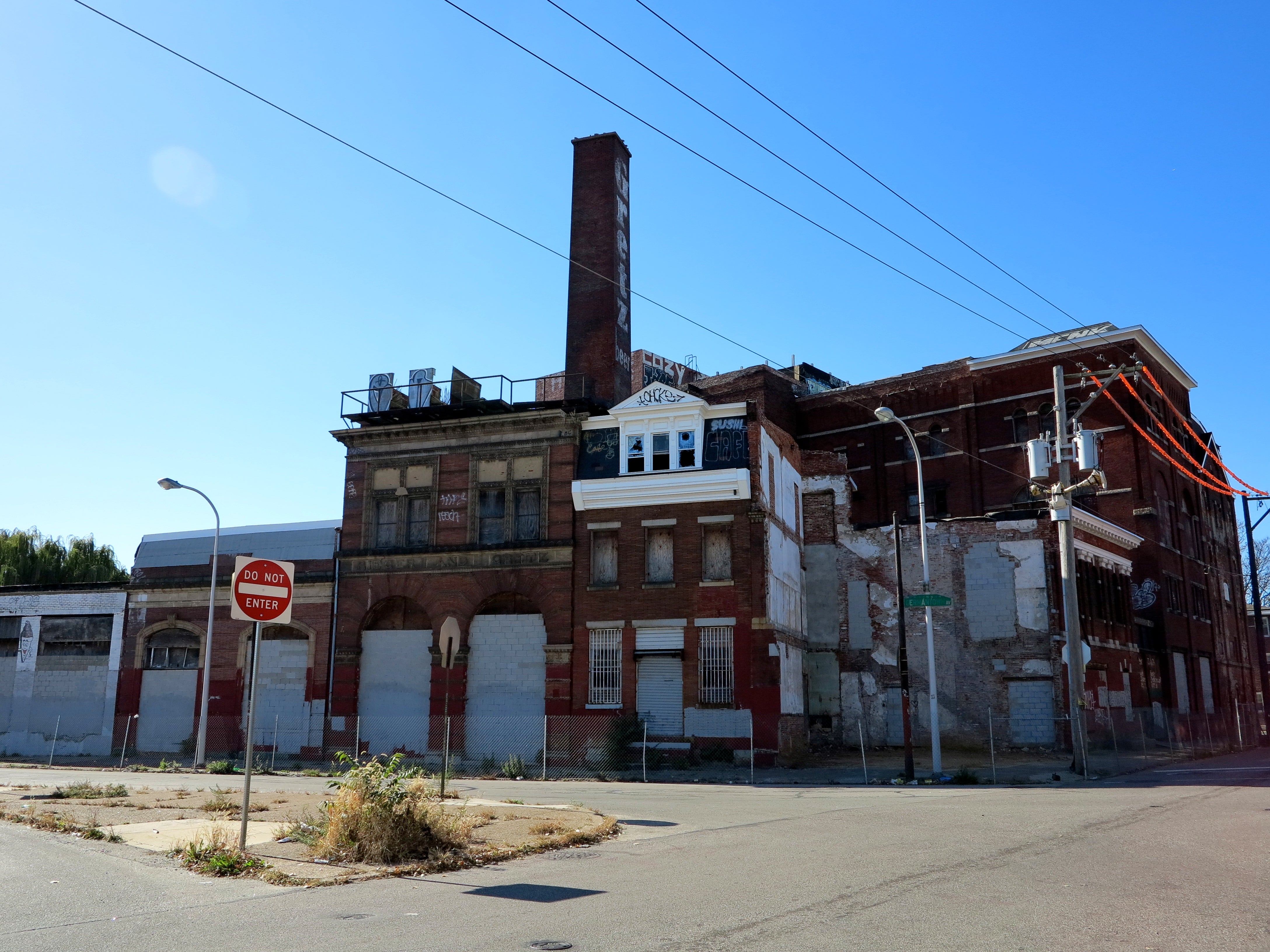Judge questions city’s ‘Doors and Windows’ ordinance

Philadelphia has recently received a round of plaudits in the national press for its efforts to force landowners to keep vacant properties in decent shape. Among those efforts is the “Doors and Windows Ordinance,” which the Department of Licenses and Inspections began enforcing in 2011. The ordinance requires owners of vacant properties to seal all openings with functional doors and glass windows, or else face punitive fines of $300 per opening per day. A 2014 study from The Reinvestment Fund found that the ordinance was working.
But last month, a judge with the Court of Common Pleas in Philadelphia issued an opinion suggesting that the ordinance may be invalid.
The case is focused on a property at Germantown Avenue and Oxford Street in Kensington, a massive vacant structure that formerly housed the Gretz Brewery. Owner Tony Rufo was hit with a series of violations from L&I related to the property in 2012 and 2013. He subsequently resolved all the violations, except for those related to the doors and windows ordinance, which applies on blocks with a vacancy rate lower than 20 percent.
Rufo appealed the doors and windows violations to the Board of L&I Review, which found them to be proper. He then appealed to the Court of Common Pleas, which ruled in Rufo’s favor in late September, saying that the doors and windows ordinance is unduly focused on aesthetics.
“The essential implementation of this ordinance in this case appears to be concerned more with aesthetics and the appearance of occupancy rather than blight, safety and security,” wrote Judge Linda Carpenter. “Such a purely aesthetic goal has a minimal relationship to reducing blight (which is a complicated integration of economics, poverty, crime, aesthetics and social issues) requiring a cost to the property owner that is completely disproportionate to the benefit of a reduction in ‘blight’ that may (although it may not) result.”
Judge Carpenter cited Pennsylvania case law saying that aesthetic concerns may be a consideration in zoning ordinances and other laws that regulate property use, but they can’t be the sole consideration. In this case, the judge said, requiring openings to be sealed with new doors and glass windows has a dubious benefit to public safety over, say, sealing them with bricks or metal bars.
“The ordinance basically requires that vacant structures, even if they’re secure, have to install new glass windows and brand new doors,” said Richard DeMarco, an attorney representing the property owner. “… If you are going to force an owner to impact his property in such a manner you have to have a compelling purpose, a government purpose. Aesthetics alone under the caselaw are not a proper government purpose.”
Proponents of the rule say that it’s not just about aesthetics, though. Rick Sauer, director of the Philadelphia Association of Community Development Corporations (PACDC), said the ordinance has been shown to be an effective deterrent to crime and has led to an increase in the value of surrounding properties.
“When long-term owners of vacant properties continue to neglect their responsibilities as owners it has a significant impact on surrounding communities and adjacent property owners,” said Sauer, whose group helped TRF create the report measuring the impact of the doors and windows ordinance.
“If it looks more like an occupied property, other folks are likely to care more about the neighborhood and invest more in their neighborhoods,” he added.
Attorney Ed Jefferson, who represented the City in the case, said the City has filed an appeal of the Common Pleas decision and believes the case is “very meritorious.” He declined to comment further while the case is ongoing.
In the meantime, L&I is continuing to enforce the ordinance, which is part of the Property Maintenance Code. Judge Carpenter’s ruling overturns the Board of L&I Review’s decision on Rufo’s violations, but it doesn’t explicitly overturn the law. Even if it did, L&I would be likely to continue enforcing the rule while the decision is under appeal.
“Having the appearance of occupancy helps reinvigorate the block,” said Rebecca Swanson, the director of policy and legislative affairs for L&I. “There’s tons of research out there that having a vacant property depresses property values and increases crime …”
Swanson said that although the doors and windows ordinance was adopted in 2003, it wasn’t really implemented until 2011, when it was “discovered” by Maura Kennedy, the former coordinator of L&I’s vacant property strategy who has since left to work for Mayor Bill Peduto of Pittsburgh. The ordinance then became the centerpiece of L&I’s efforts to combat blight. Swanson said the Department now targets enforcement of the rule in areas where owners are likely to see some additional benefit—beyond simply avoiding fines—to reinvest in their properties.
“We don’t want their money,” Swanson said. “We want them to come into compliance.”
The bill was initially sponsored by 5th-District Councilman Darrell Clarke, who is now the president of Council. Clarke’s office did not respond to a request for comment on Tuesday.
WHYY is your source for fact-based, in-depth journalism and information. As a nonprofit organization, we rely on financial support from readers like you. Please give today.





